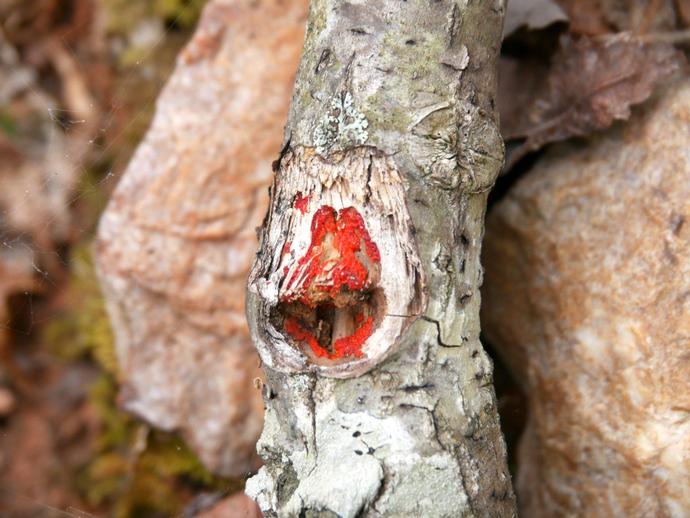January 16, 2021
We're reaching into the archives for today's #BenInNature update presented by our friends at Carter Bank & Trust! The following post was originally published on May 10, 2020.
While I'm no expert on slime molds (nor have I ever claimed to be), I'm pretty sure this is the red raspberry slime mold Tubifera ferruginosa. Slime molds used to be considered fungi, but now they are grouped within the kingdom Protista, which serves as the taxonomic catch-all for everything that doesn't fit into any of the other kingdoms of life. This means they aren't animals, plants, or fungi. Other examples of protists include amoebas, diatoms and algae.
Slime molds start out as single-celled amoeba-like critters that usually feed on bacteria. Once a slime mold cell mates with another slime mold cell, they begin to form a plasmodium, which is a mass of cellular material with multiple nuclei. It's all pretty confusing, but basically, a slime mold starts life as a tiny little thing that can grow into a very large, slimy mass.
You have probably seen slime mold pretty often, especially if you use mulch in your garden. Slime molds love to form on landscaping mulch, and it usually looks like someone became extremely ill in your flowerbed (seriously, one of the most common slime molds is Fuligo septica, commonly referred to as "dog vomit slime mold").
ABOUT #BenInNature
Social distancing can be difficult, but it presents a great opportunity to become reacquainted with nature. In this series of posts, Administrator of Science Ben Williams ventures outdoors to record a snapshot of the unique sights that can be found in the natural world. New updates are posted Monday - Friday, with previous posts highlighted on the weekends. This series of posts is made possible thanks to the support of VMNH Corporate Partner Carter Bank & Trust.
NATURE PHOTO IDENTIFICATIONS
If you discover something in nature that you would like help identifying, be sure to message us right here on Facebook with a picture (please include location and date of picture) and we'll have our experts help you identify it!

 Hours & Admissions
Hours & Admissions Directions
Directions

